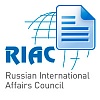Publications Review 16.08.2013
In
Login if you are already registered
(no votes) |
(0 votes) |
In this issue you will find: Latin American integration projects, NSA, education for refugees, Liberalism in Egypt, Kurdistan Region of Iraq.
 An article by Emile Schepers (People’s world), recently published by Argentinean UNASUR Outlook examines Latin American integration projects, such as MERCOSUR and ALBA and argues that “In spite of the death of Venezuela’s President Hugo Chavez and other reverses, the “Bolivarian” process of integration in Latin America is advancing”.
An article by Emile Schepers (People’s world), recently published by Argentinean UNASUR Outlook examines Latin American integration projects, such as MERCOSUR and ALBA and argues that “In spite of the death of Venezuela’s President Hugo Chavez and other reverses, the “Bolivarian” process of integration in Latin America is advancing”.
 Jeff Jarvis from the Guardian examines in his column published by Other News argues that despite NSA claims that it ‘touches’ only 1.6% of internet traffic it is more than enough to control the information flow.
Jeff Jarvis from the Guardian examines in his column published by Other News argues that despite NSA claims that it ‘touches’ only 1.6% of internet traffic it is more than enough to control the information flow.
 In his article in the latest issue of Global Education Magazine David Dickson, Executive Director-Kenya at International Council for Education, argues that “the most important assistance that can be provided those displaced from the ancestral homes, is to help them obtain an enabling education” and hence “Millennium Development Goals (MDGs) should include strong statements about the significance of assistance in refugees obtaining an education”.
In his article in the latest issue of Global Education Magazine David Dickson, Executive Director-Kenya at International Council for Education, argues that “the most important assistance that can be provided those displaced from the ancestral homes, is to help them obtain an enabling education” and hence “Millennium Development Goals (MDGs) should include strong statements about the significance of assistance in refugees obtaining an education”.
 In his column at Foreign Policy James Traub is analyzing current public unrest in Egypt and states that Liberalism in its radical forms can often be no less destructive than Islamism.
In his column at Foreign Policy James Traub is analyzing current public unrest in Egypt and states that Liberalism in its radical forms can often be no less destructive than Islamism.
“Perhaps we in the West were confused by the word "liberal," which we associate with a tolerant and dispassionate attitude towards difference. That kind of attitude presupposes a sense of confidence about the world, and about the political marketplace, which Arab publics have very little reason to feel. When the stakes feel truly dire, as they do in Egypt, liberalism itself can become a form of zealotry. This is the dark place in which Egypt now finds itself”.
 Hannes Artens in his article published by e-International Relations examines the case of Kurdistan Region of Iraq and argues that it stimulates the researchers to rethink the concept of sovereignty.
Hannes Artens in his article published by e-International Relations examines the case of Kurdistan Region of Iraq and argues that it stimulates the researchers to rethink the concept of sovereignty.
“Shifting focus from a mere question of status to how this matrix of performances enacts sovereignty at large, how the never fully complete but constant process of ‘becoming a state’ works in this particular case, allows analysts not only to better capture the complex dynamics in today’s Iraq, but, at a wider level, better captures the nature of sovereignty and statehood as a discourse”.
(no votes) |
(0 votes) |




